Treating Acne in Japan: A Savvy Guide
Know Your Options for Getting Clear Skin
For many, acne is a serious issue and widespread affliction with no single cure. Let's discuss how to address it in Japan.
If left untreated, breakouts may become more serious, difficult to clear and leave scars. Here are some of the options for treating acne in Japan.
- Drugstore Skincare
- Dermatologist
- Medical Skincare
- Antibiotics (Oral and Topical)
- Skin Clinics Specialized in Acne
- The Beauty Salon
- Tailored Treatment
Waking Up To A Pimple: Drugstore Skincare
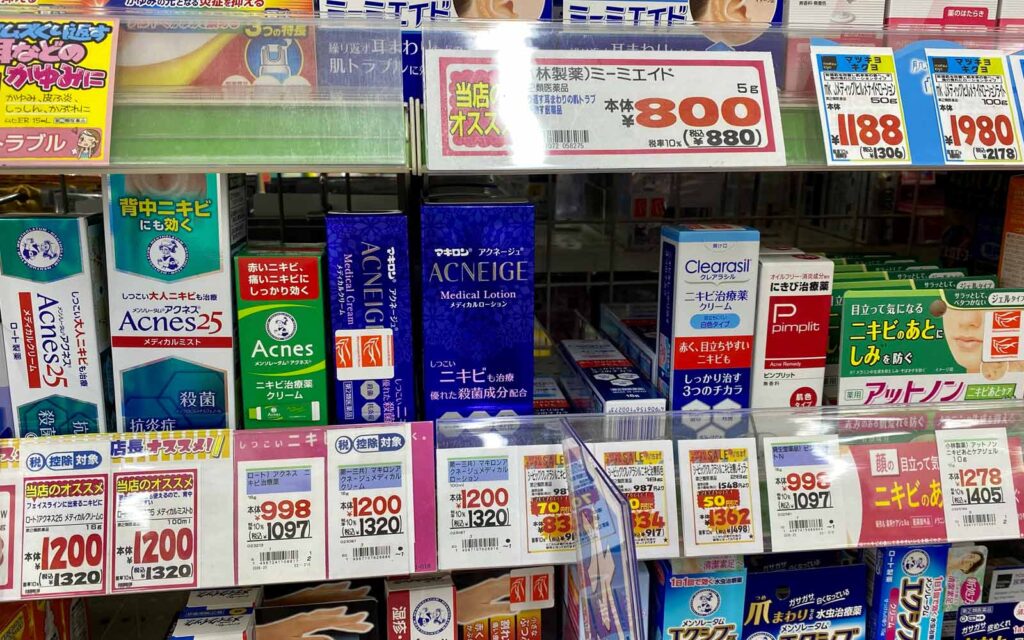 © Photo by Paula Chiarino
© Photo by Paula ChiarinoPimples appear at inconvenient times. To get rid of a pimple fast, you could head to the drugstore. Go past the miraculous serums and patches that falsely promise to make your pimple disappear in a few hours, and head to the pharmacy area instead. There, next to the plethora of topical ointments for skin dryness and itchiness, you’ll find a somewhat limited array of products for acne.
The products available, however, are generally formulated with effective ingredients proven to kill bacteria, reduce inflammation and prevent infection, such as ibuprofen piconol, resorcinol and isopropyl methylphenol.
Do these sound strangely unfamiliar? These ingredients are not commonly found in most over-the-counter skin care products overseas, while Western favorites like salicylic acid or benzoyl peroxide are usually not included in Japanese products. However, all of them do the trick.
While drugstore skin care may help you control an occasional pimple, more serious or persistent cases require professional care.
When In Doubt: Visit A Dermatologist
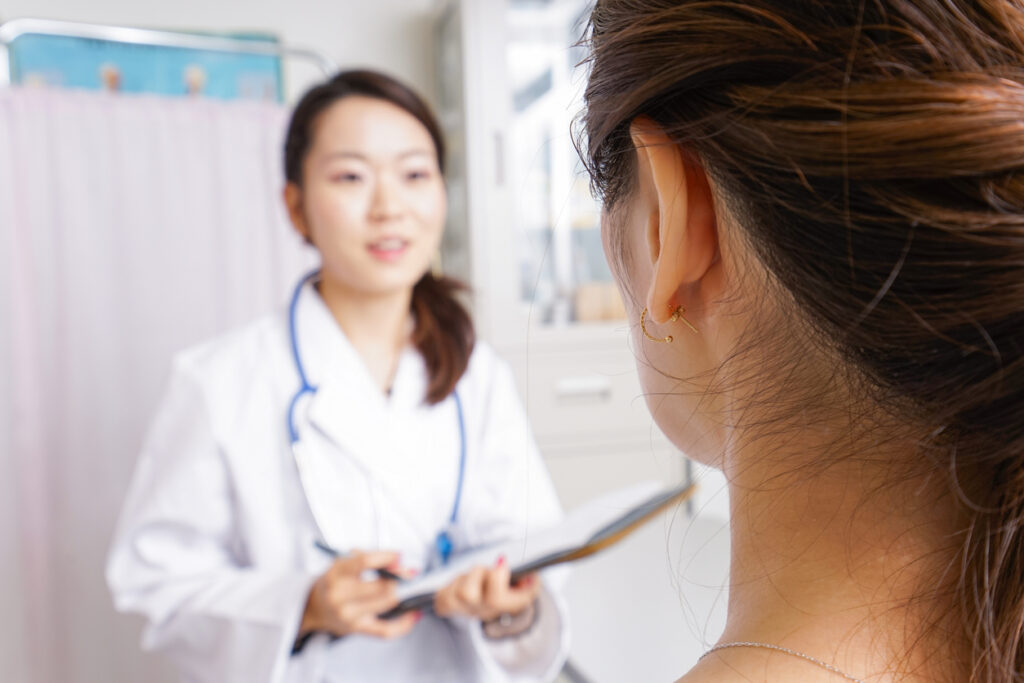 © Photo by iStock: maroke
© Photo by iStock: marokeAfter a few breakouts, over-the-counter products may begin to fall short. If the affected area has expanded, the product you’re using simply may not be what you need. You may start to wonder whether it’s just a rash, a hormonal breakout or something more serious.
It’s time for a doctor’s diagnosis. A visit to the dermatologist can also be a good time to get your yearly skin check-up for moles and dark spots.
Dermatologists in Japan are open and flexible, and they know that skincare is different in the West. For that reason, you should be specific about any treatments you’ve received before as well as any you’d like to try and establish your budget. Doctors are usually interested in your history and preferences, and will gladly take your ideas into account.
Doctors will usually opt for one of the following paths:
Medical Skincare
 © Photo by NOV
© Photo by NOVMedical skincare is dermatologist-tested and usually avoids skin irritants like fragrance or alcohol. It is sold over the counter and is usually targeted to sensitive skin with specific conditions.
La Roche Posay and Bioderma, for example, are well-known medical skincare brands trusted by dermatologists around the world. In Japan, however, most medical skincare falls under the realm of one brand: NOV.
A Japanese brand developed by dermatologists in 1985, NOV formulates hypoallergenic and fragrance-free products. Unlike pricey medical skincare from overseas, NOV is a middle-range option (think ¥2200 sunscreen) that can be easily found in most cosmetic stores in Japan.
NOV sells three different product lines dedicated to acne, so your doctor will probably identify a NOV product worth incorporating into your skincare routine.
Antibiotics (Oral and Topical)
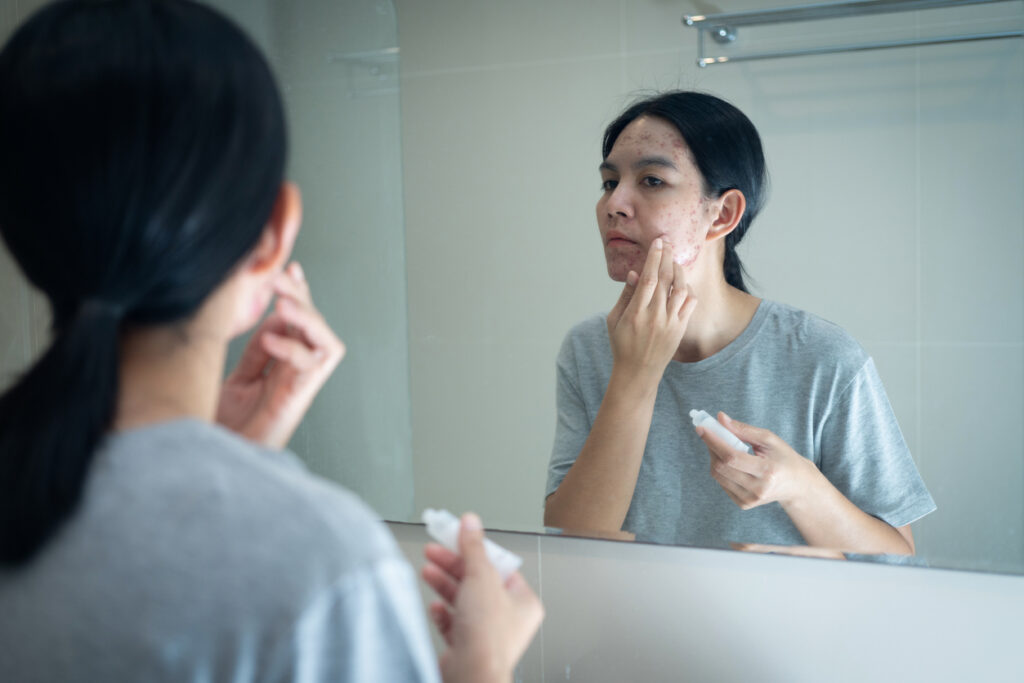 © Photo by iStock: Suphanat Khumsap
© Photo by iStock: Suphanat KhumsapIf your skin does not respond to an over-the-counter skincare routine, you may become a candidate for either oral or topical antibiotics.
Antibiotics are sold under medical prescription and are, in most cases, covered by health insurance. Adapalene gel was the first topical antibiotic to be covered by insurance in Japan. Like most retinoid treatments, it can have adverse side effects, including skin dryness and flakiness. However, if your doctor believes it’s right for you, applying adapalene on the affected area could reduce inflammation and scarring for a moderate price tag.
Despite its popularity overseas, Adapalene is not the most frequently indicated treatment in Japan. Many doctors recommend Japanese products instead. A popular alternative is Zebiax lotion, which contains ozenoxacin, a drug with similar properties to adapalene.
Suppose your doctor determines oral antibiotics to be the best option for you. In that case, you will visit them often to track your progress and to receive your next batch of medication—you’re usually given about a month’s worth of treatment at a time. Commonly prescribed oral antibiotics in Japan include minocycline, roxithromycin and metronidazole.
Searching For Specifics: Skin Clinics Specialized in Acne
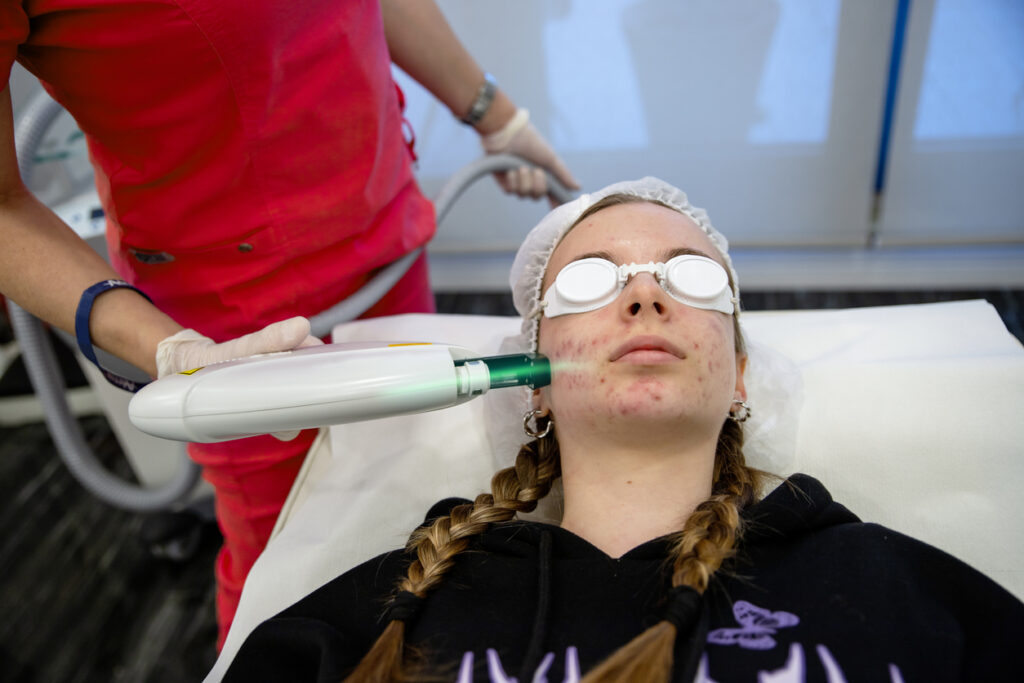 © Photo by iStock: PhotoLife94
© Photo by iStock: PhotoLife94Compared to general dermatology clinics, specialized skin clinics in Japan offer a wider array of services, such as BHA chemical peelings, laser therapy, photo facials and oral retinoids like isotretinoin.
Most of the services offered in these clinics are not covered by health insurance, though. Additionally, some charge a considerable fee not just for consultations but also for having you do a preliminary check-up or blood test. Make sure to inquire about costs before scheduling your first visit.
Despite their often hefty cost, these clinics can help patients who are looking for a specific treatment or who want to see results quickly.
Try these English-speaking skin clinics in Tokyo:
Just For Fun: The Beauty Salon
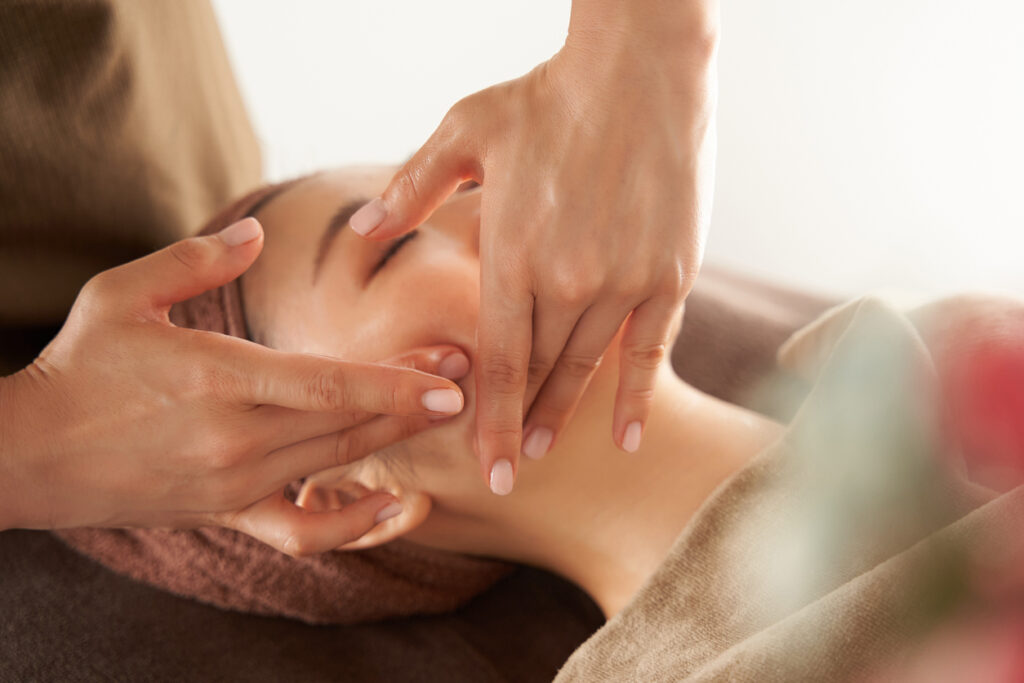 © Photo by iStock: mapo
© Photo by iStock: mapoIf you want to pamper yourself and improve your skin texture, visiting a beauty salon may be the relaxing and invigorating experience you’re looking for.
Beauty salon services like micro-needling and facial spas only improve the appearance of the skin. They will not cure a skin disorder. However, they may help you clear your mind and your skin, a win-win situation as long as your doctor approves of it.
See our article on the best beauty salons in Tokyo for our recommendations.
The Takeaway: Get A Tailored Treatment
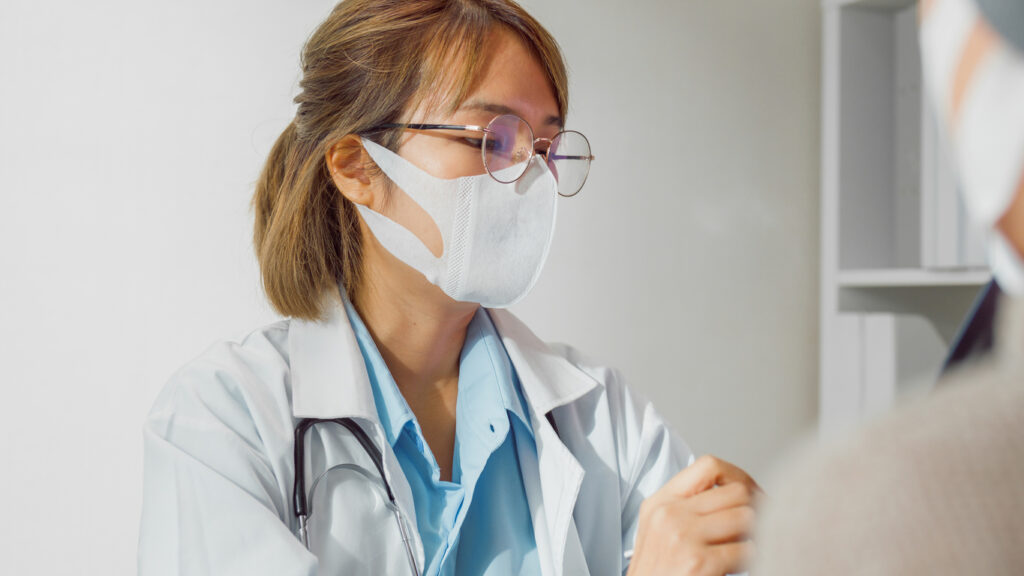 © Photo by iStock: MTStock Studio
© Photo by iStock: MTStock StudioAcne affects the quality of life of many and is underestimated by most. If your skin is making you uneasy, reach out to a doctor. Treating acne, as challenging as it is everywhere in the world, can be affordable and effective in Japan.
If your skin is making you uneasy, reach out to a doctor.
You can trust doctors and specialists to take your concerns seriously and suggest a course of action based on your lifestyle and needs.
How did you overcome acne in Japan? Let us know in the comments.








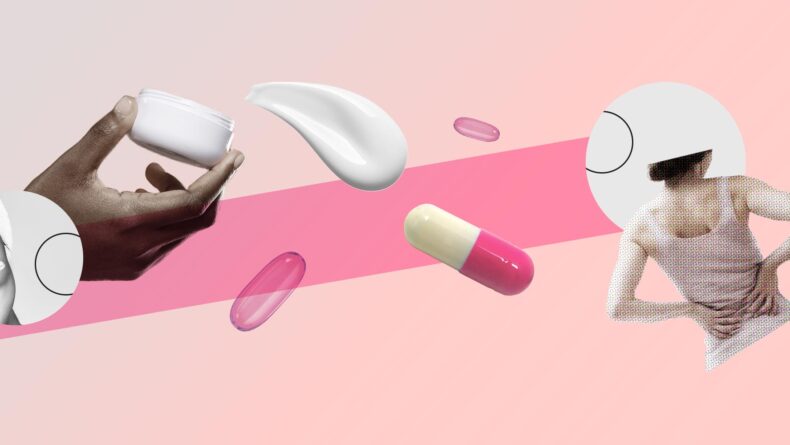
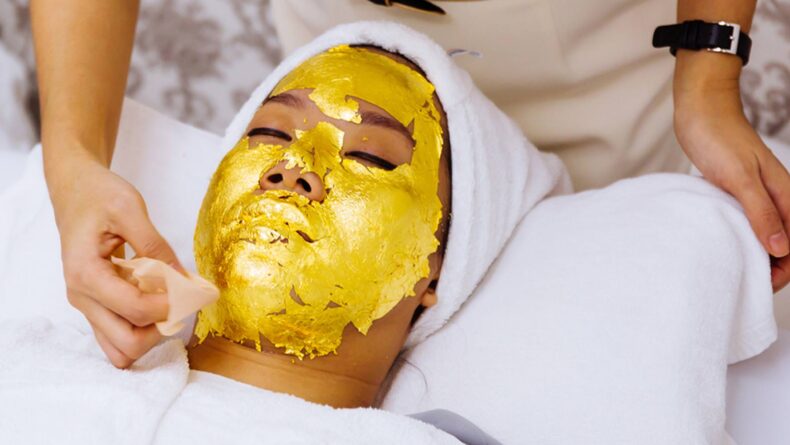
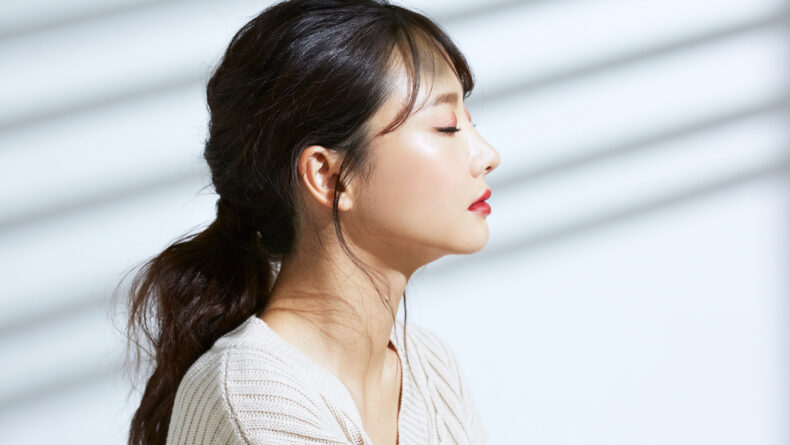
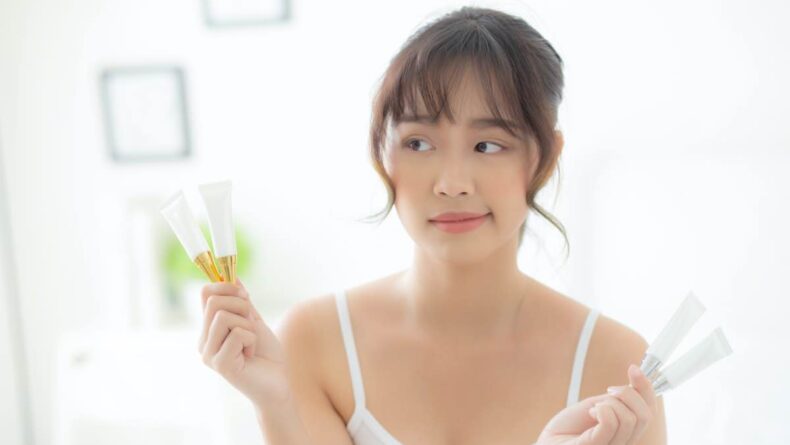
My acne started after 10 years in Japan. Now I’ve been here for over 35 years. The only product that soothes and clears my skin is 10% benzoyl peroxide. I spent a lot of money on several useless treatments. I continue applying it 3 or 4 times a week.